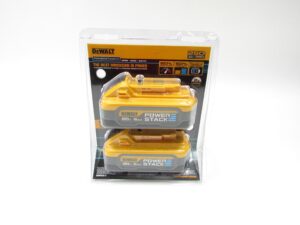Installing a Tesla charger typically costs between $800 and $1,500, depending on various factors such as location and electrical upgrades. As electric vehicles gain popularity, more homeowners are considering this essential investment to ensure convenient charging at home.
Understanding how much does Tesla charger installation cost helps you plan your budget effectively. With the right information, you can take a step closer to enjoying the benefits of electric driving without worrying about charging hassles.
How Much Does Tesla Charger Installation Cost?
If you own a Tesla or are about to purchase one, you may wonder about the cost of installing a Tesla charger at home. Understanding the costs involved in installation not only helps you budget but also allows you to enjoy the convenience of charging your vehicle right at home.
Understanding Tesla Charger Options
Before we discuss the costs, it’s essential to understand the different types of Tesla chargers available for home installation. Generally, Tesla offers two main types of home chargers:
1. Tesla Wall Connector
The Tesla Wall Connector is a Level 2 charging station. It provides faster charging compared to standard outlets, allowing you to charge your vehicle overnight for a full day of driving. This unit is known for its reliability and compact design.
– **Features:**
– Adjustable power levels up to 48 amps.
– Compatible with all Tesla vehicles.
– Wi-Fi connectivity for software updates.
2. NEMA 14-50 Outlet
While not specifically designed for Tesla, a NEMA 14-50 outlet can be used with a mobile connector. This is a great option for those who want a more temporary or less permanent charging solution.
– **Features:**
– Can charge at a rate of about 30 miles per hour.
– Requires a proper installation by a qualified electrician.
– Less expensive than the Wall Connector in terms of equipment.
Factors Influencing Installation Costs
The overall cost of installation can vary based on several factors. Understanding these can help you get a more accurate estimate.
1. Type of Charger Chosen
The type of charging unit you decide to install will significantly impact the cost:
– **Tesla Wall Connector**: Generally runs around $500 to $700.
– **NEMA 14-50 Outlet**: Costs about $40 to $60 for the outlet itself, but installation costs may vary based on your electrical setup.
2. Electrical System Upgrades
If your home’s electrical system cannot support the additional load, you may need to upgrade your electrical panel. Here’s what to consider:
– **Panel Upgrade Cost**: Upgrading a panel can range from $1,000 to $3,000.
– **Wiring**: If new wiring is required, costs can increase by an additional $500 to $2,000, depending on the distance from the panel to the installation site.
3. Labor Costs
Hiring an electrician is often necessary for a safe and compliant installation. Here are some key points:
– **Hourly Rate**: Electricians typically charge between $50 to $100 per hour.
– **Installation Time**: Most installations can take anywhere from 2 to 4 hours, depending on the complexity of the job.
4. Geographic Location
Costs can also vary based on where you live. Urban areas may have higher installation fees compared to rural regions. Furthermore, local permits can add to the costs.
Estimating Total Installation Costs
Let’s break down the estimated total costs for different scenarios to give you a clearer idea.
Scenario 1: Installing a Tesla Wall Connector
– **Charger Cost**: $500 – $700
– **Panel Upgrade (if necessary)**: $1,000 – $3,000
– **Installation Labor**: 3 hours x $75/hour = $225
– **Total Estimated Cost**: $1,725 – $4,925
Scenario 2: Installing a NEMA 14-50 Outlet
– **Outlet Cost**: $40 – $60
– **Wiring and Installation**: $500 – $1,500
– **Total Estimated Cost**: $540 – $1,560
Potential Savings and Incentives
When considering Tesla charger installation, it’s worth investigating available savings and incentives that could offset some costs.
1. Federal Tax Credit
The federal government offers tax credits for EV charging equipment. As of now, taxpayers can claim 30% of the cost of the charger and installation, up to $1,000 for residential installations. Check the current rules to ensure eligibility.
2. State and Local Incentives
Many states and local municipalities offer additional rebates or incentives for EV infrastructure. Some areas may even provide free installation services. Research local programs to see if you qualify.
3. Utility Company Rebates
Some utility companies offer rebates for installing EV chargers. These can significantly lower your out-of-pocket expenses. Contact your utility provider for more information.
DIY Installation vs. Hiring a Professional
Some Tesla owners consider the option of installing the charger themselves to save on labor costs. However, this may not always be the best approach. Let’s look at the pros and cons of each option.
DIY Installation
– **Pros**:
– Potentially saves money on labor.
– Gives you hands-on experience with electrical work.
– **Cons**:
– Risk of incorrect installation leading to safety hazards.
– May not be eligible for tax credits if not installed by a licensed electrician.
Professional Installation
– **Pros**:
– Ensures safety and compliance with local codes.
– Allows for proper panel assessments and upgrades.
– Warranty coverage on installation.
– **Cons**:
– Higher upfront cost due to labor fees.
– Finding a reliable electrician can take time.
Common Questions About Tesla Charger Installation
Here are some common questions that potential Tesla owners might have about charger installation.
1. How long does it take to install a Tesla charger?
Most installations generally take about 2 to 4 hours, depending on the specific setup and any necessary electrical work.
2. Do I need a permit to install a charger?
Most localities require a permit for electrical work, including EV charger installations. Check with your local building department.
3. Can I charge my Tesla with a regular outlet?
Yes, you can use a standard 120V outlet, but charging will be much slower. It’s advisable to use a Level 2 charger for efficiency.
4. What happens if I move? Can I take my charger with me?
Yes, you can uninstall the charger and take it with you. However, consider any local laws regarding electrical installations at your new residence.
Best Practices for Tesla Charger Maintenance
Once you have installed your Tesla charger, keeping it well-maintained is crucial to ensure safety and efficiency.
1. Regular Inspection
Inspect the charging cable and connector for any wear or damage. Look for frayed wires or exposed parts.
2. Clean the Charger
Dust and dirt can accumulate on the charging unit. Utilize a damp cloth to clean the surface and avoid using abrasive materials.
3. Ensure Proper Usage
Always follow the manufacturer’s guidelines for usage to avoid voiding warranties and ensure safety.
4. Schedule Professional Servicing
Consider having a professional check your charger periodically, especially if you notice any issues.
The Future of Tesla Charging Solutions
As electric vehicle technology evolves, so do the charging solutions. Tesla is continuously working on enhancements to their chargers and infrastructure. Future advancements may include:
– **Faster Charging Techniques**: More powerful chargers that can reduce charging times dramatically.
– **Integration with Home Energy Systems**: Seamless integration with solar panels and home batteries for energy savings.
– **Smart Charging**: Improved scheduling and charging based on utility rates, enabling cost-effective usage.
By understanding the costs involved in installing a Tesla charger at home, you empower yourself to make informed decisions. Factoring in the type of charger, installation requirements, potential savings, and the importance of professional installation helps ensure you enjoy the ultimate convenience of charging your Tesla right at home.
How much does it cost to install a tesla charger at your house?
Frequently Asked Questions
“`html
What factors influence the cost of installing a Tesla charger?
The cost of installing a Tesla charger can vary based on several factors. First, the type of charger you choose affects the overall price. Level 2 chargers generally cost more than standard outlets. Second, the distance from your electrical panel to the installation site plays a significant role. Longer distances often require more wiring and labor, increasing the cost. Additionally, local labor rates and any required electrical upgrades can also influence the total installation cost.
Are there any additional fees associated with Tesla charger installation?
Yes, there can be additional fees related to Tesla charger installation. These may include permits required by your local municipality, inspection fees, and costs for any necessary electrical upgrades. Homeowners should also consider the cost of hiring a licensed electrician, which can vary based on the complexity of the installation and local labor rates.
Can I install a Tesla charger myself to save on costs?
Installing a Tesla charger yourself is possible, but it is not recommended unless you have electrical expertise. Most municipalities require that a licensed electrician perform the installation to comply with safety codes. Attempting a DIY installation can lead to safety hazards and might void your warranty or insurance. It’s typically safer and more cost-effective in the long run to hire a professional.
Is there any financial assistance available for Tesla charger installation?
Many regions offer financial incentives or rebates for electric vehicle charging equipment installation, including Tesla chargers. These incentives can significantly reduce your installation costs. Check with your local government and utility providers to find out about available programs, which may include tax credits, rebates, or low-interest loans.
How long does it take to install a Tesla charger?
Installation time for a Tesla charger can vary, but it typically takes between 4 to 8 hours for a professional electrician to complete the installation. Factors affecting this timeframe include the complexity of the installation, the need for any electrical upgrades, and the specific location of the charger within your home. Homeowners should factor this time into their schedules when planning for installation.
“`
Final Thoughts
The cost of Tesla charger installation varies based on location, charger type, and electrical work needed. Generally, homeowners can expect to pay between $500 and $2,000, which includes the charger price and installation labor. Additionally, some may need to invest in electrical upgrades, increasing the total cost.
When considering how much does Tesla charger installation cost, it’s essential to get multiple quotes and assess any specific requirements for your home. Overall, investing in a Tesla charger not only supports your electric vehicle but also adds convenience to your charging routine.



